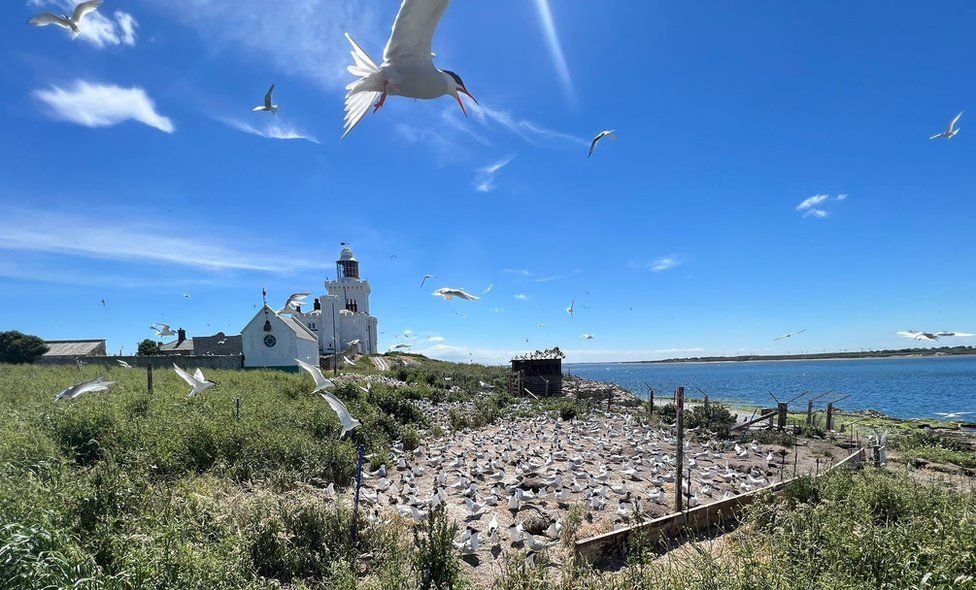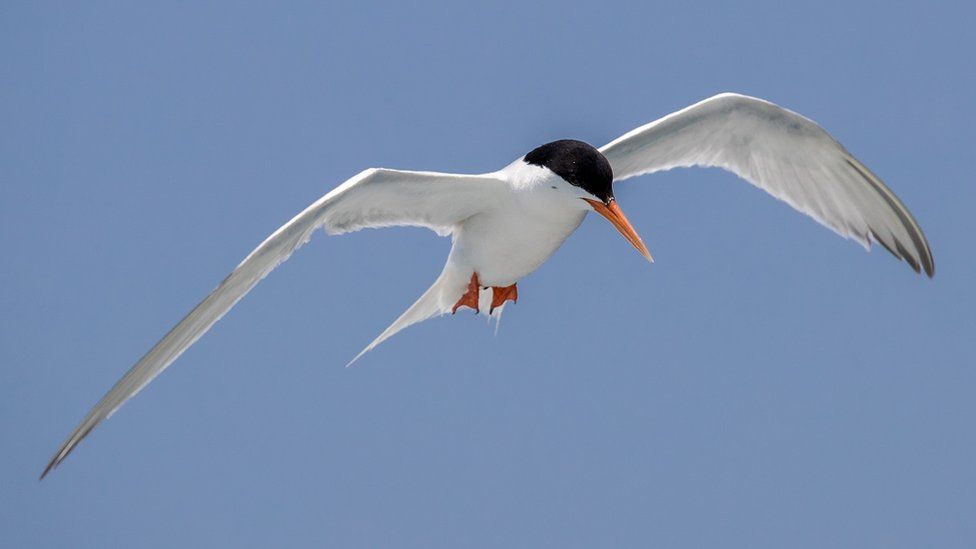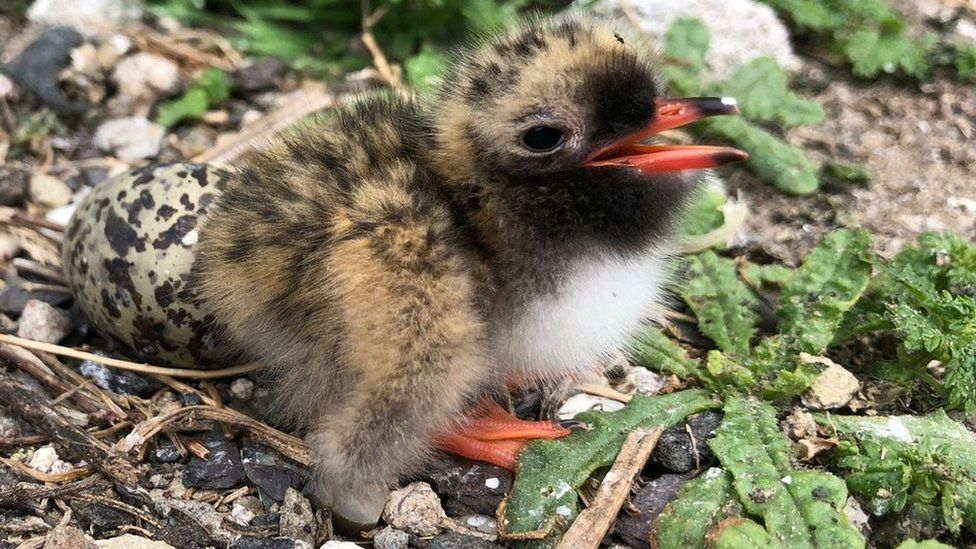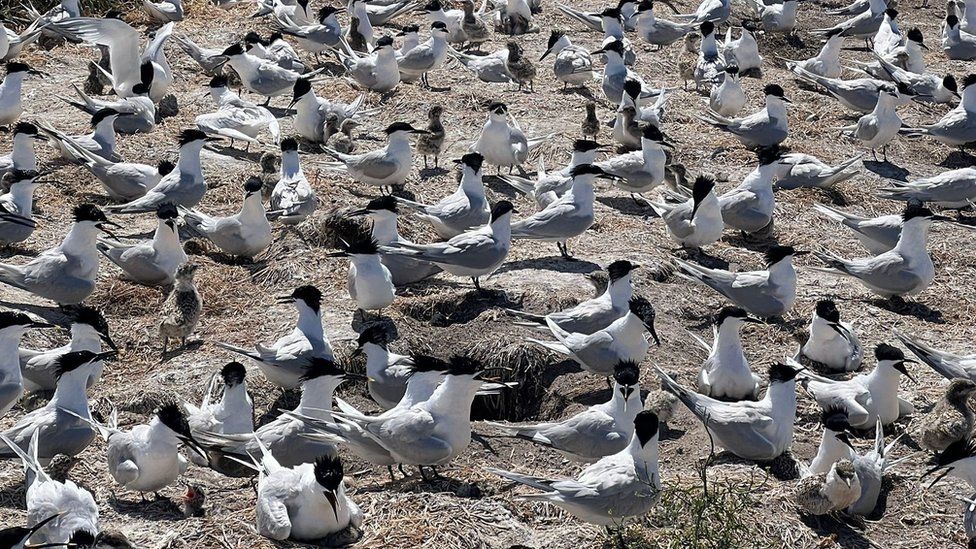 Paul Morrison
Paul MorrisonBird flu has been confirmed at the UK's only breeding colony for roseate terns.
The RSPB said hundreds of seabirds had died on Coquet Island in Northumberland with several species affected.
The charity demanded the government "acts now" to formulate a plan to deal with avian influenza in wild birds.
The Department for Environment, Food and Rural Affairs (Defra) said it was monitoring "the effect of avian influenza on wild birds species of conservation concern".
The RSPB says that although roseate tern numbers have recovered in recent years, it is still the UK's rarest nesting seabird.
The charity said the "new virulent" form of Highly Pathogenic Avian Influenza (HPAI) was having a "devastating impact" on wild birds, with tens of thousands affected around the world.

England operations director Jim Wardill said the government needed to lead on "developing and implementing national response plans for HPAI" in wild birds.
"It is vital to have a coordinated approach to surveillance and testing, disturbance minimisation and public messaging, along with a joined-up strategy regarding arrangements for the poultry sector," he said.
There also needed to be clarity on the process for collecting dead birds and long-term planning for future threats, he added.

The Coquet Island wildlife sanctuary, home to an estimated 82,000 seabirds, is an important site for nesting puffins, and common, sandwich and arctic terns.
The RSPB said conservation efforts had led to an increase in its roseate tern population from 104 breeding pairs in 2016 to an expected 160 pairs this year.
Site manager Paul Morrison said: "To go from enjoying another record breeding season and our best year ever, to facing the threat of this disease is a terrible blow.
"The terns in particular are all with chicks and, when the adults die, so do the young birds."

Bird flu has affected all four species of tern on the Island along with eider ducks, black-headed gulls and large gulls.
No puffin deaths have been recorded so far.
Members of the public are being reminded not to touch dead or sick birds, to keep dogs away and to report them as soon as possible to the Defra helpline on 03459 33 55 77.

Follow BBC North East & Cumbria on Twitter, Facebook and Instagram. Send your story ideas to northeastandcumbria@bbc.co.uk.
Related Internet Links
"bird" - Google News
July 02, 2022 at 06:40PM
https://ift.tt/l4sz6mk
Bird flu confirmed at Northumberland roseate tern colony - BBC
"bird" - Google News
https://ift.tt/y61DFY2
https://ift.tt/a2NJdKh
Bagikan Berita Ini














0 Response to "Bird flu confirmed at Northumberland roseate tern colony - BBC"
Post a Comment